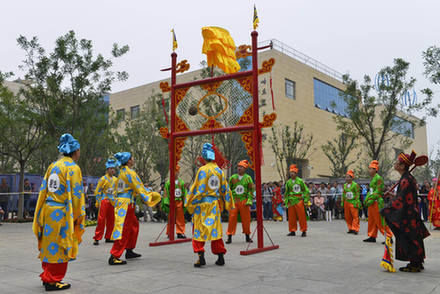Promising Future for Sino-Lebanese Relations
China Today: As you said, the situation in the Middle East is volatile; but Lebanon maintains a relative secure place. How has that been possible?
Ambassador Abboud: Whatever difficulties Lebanon has experienced in the past, the nation continues to exist, grow and live. We realize that we are in a difficult area. But our goal is diversity. That means no one party or faction can control Lebanese politics, which is based on dialogue, exchange and compatibility. This makes the situation more complex, of course, but ultimately, it enables different groups to co-exist with stability in the country. A big problem that we face now is the Syrian refugees coming to Lebanon as a result of the war in Syria. They now account for 40 percent of the population in Lebanon. This puts significant pressure on us. The state provides services to the refugees – their children go to our schools, for example. We pray for stabilization of the situation in Syria, so that the refugees can return to their country.
China Today: The existing cooperation between China and Lebanon covers many sectors, not only politics, economy and trade, but also social, cultural and health issues, education and other areas of common interests. These close and deep ties are reflected in the level of exchanges between the two peoples.
Ambassador Abboud: The number of Lebanese people studying Chinese is increasing thanks to the many Confucius Institutes in Lebanon. Conversely, there are a number of Chinese students studying Arabic in Lebanon as part of university exchange programs. Such students are learning not only modern standard Arabic, but also Lebanese Arabic in order to converse with the public day-to-day. There are cooperation programs between Lebanese and Chinese universities. In addition there are multiple scholarships that allow Lebanese students to attend Chinese universities, not only for language studies but also other majors, for example in new technologies and communications. In terms of cultural relations, negotiations are underway to invite Lebanese art groups to China, and vice versa. Several Chinese dance and music troupes will visit Lebanon next year.
China Today: How do the Lebanese, especially the young people, perceive China?
Ambassador Abboud: The old view was that China was a far and distant land. But of course, as travel becomes easier nowadays, geographic distance is no longer an issue. The fundamental perspective now is that China stands out as a new force and is rising quickly, becoming a major industrialized country. This is a new look for China. There is a will for more cooperation with the country. It is becoming easier to discover China, but dealing with Chinese people is still relatively difficult because of the language and cultural differences. But I think that the increase in the number of Lebanese visitors to China, and Chinese visitors to Lebanon, will enhance our relationship further, and the two peoples will come to a better understanding of each other.
China Today: Chinese President Xi Jinping has called for building the New Silk Road Economic Belt to promote economic and cultural cooperation between China and Arab countries, and with other countries along the Silk Road. What do you think of this initiative?
Ambassador Abboud: We hope that this initiative will contribute to more development of the relations between China and Arab countries. We place high importance on bilateral relations between Lebanon and China, and I think that there is considerable scope for promoting them further. The New Silk Road Economic Belt is expected to push forward economic cooperation between China and the Arab world. I always participate in China-Arab dialogues, and I notice that common will does exist. As for Lebanon, it is a small country, but has the flexibility of economic cooperation. Like the Chinese, we have an ancient history of being merchants. I think the fast growth of trade relations between Lebanon and China will continue. We have also noticed that the relations between China and other Arab countries are advancing robustly. I think the future of Sino-Arab relations, including economic relations, is very promising due to the common needs and interests of either side. Of course, there are a number of measures both nations must take. For our part, we have to work to remove obstacles and facilitate the exchange of goods.
China Today: What are your aspirations for the future of Sino-Lebanese relations?
Ambassador Abboud: Continued cooperation, more scholarships, more students of both languages; but most importantly, stability of the region to attract Chinese tourists. I sincerely hope these dreams will be realized in the near future, God willing.

